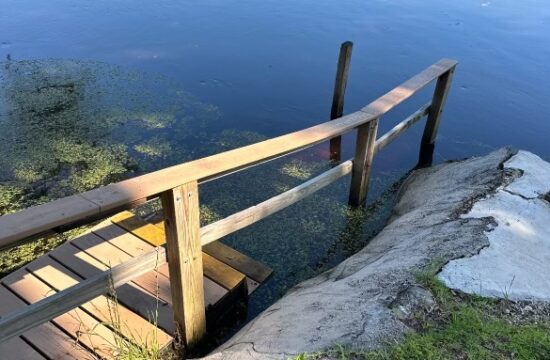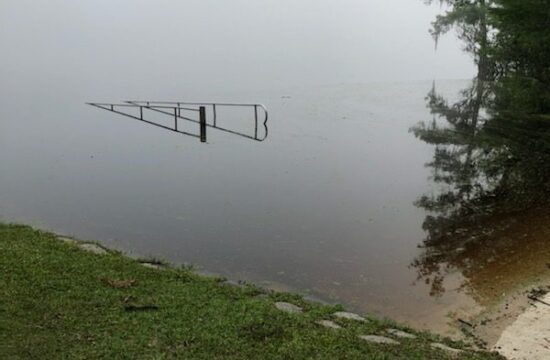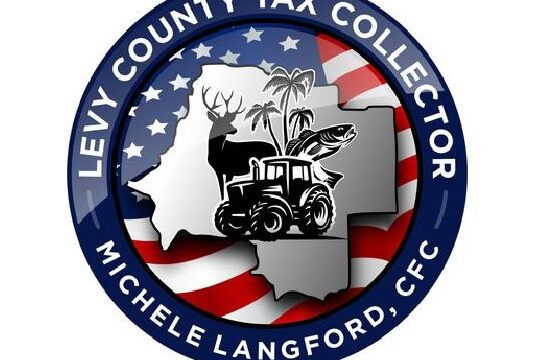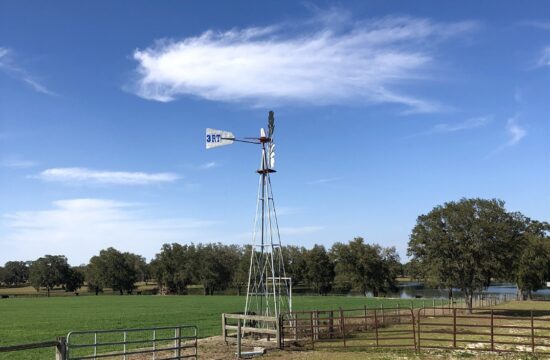By Terry Witt – Spotlight Senior Reporter
A workshop in Rosewood Thursday night revealed in broad terms how a proposed $80-$100 million public water and sewer utility spanning three cities would operate in Levy County, but the discussion was short on details about how the unincorporated community of Rosewood might be able to tap into the system.
The workshop was hosted by Levy County Commissioners, the Town of Bronson, Suwannee River Water Management District, and Wetlands Solutions, Inc. All are participants in a committee involved in discussing how to organize the new tri-city utility, how to operate the utility, and what name to give it.
Committee members wanted to gather public input from residents of Rosewood on whether they would be interested in being served by the utility. They scheduled the workshop for that purpose.
At the end of the workshop, residents were asked to contact Levy County Commissioner Lilly Rooks, who lives in Rosewood and represents them, to discuss with her whether they support or don’t support the project and why. Rooks initially said she didn’t want to be connected to the utility’s pipelines if they were extended to Rosewood, but she said Thursday her view changed after talking to her two sons who are looking at the future of her property after she is gone.
As it stands now, the only thing that is considered to be somewhat certain concerning how the tri-city utility might operate is that a new wastewater treatment plant and water treatment plant would probably be built near Bronson to supply water and sewer services to Bronson, Otter Creek, and Cedar Key, and a 30-mile water pipe would provide all three cities with water, and a 30-mile sewer pipe would carry raw sewage to the new wastewater plant for treatment.
The committee has tentatively identified an area of several thousand acres in size in the Bronson sand hills as the potential wellfield site for supplying the three cities with water. Bronson has high-quality water that needs very little treatment.
Rosewood is under the jurisdiction of the Levy County Commission. Commissioners have briefly discussed whether they would have any interest in expanding their small water utility department to include Rosewood but there are concerns among some board members about “getting into the water business” and having to add more staff for a bigger water department.
The county operates several small public water systems that were abandoned by their private owners. The county commission was required by state law to take over the operation of the abandoned private systems. The county doesn’t make a profit running those water utilities, so the question is whether the board would want to form a branch utility to serve Rosewood. If the board were to take on the task, it would involve obtaining grants to connect Rosewood residents to the tri-city utility’s water pipeline running along State Road 24 and administer the billing and collection of water bills and maintain the system. If the board went a step further and decided to run sewer lines off the tri-city utility’s main sewer pipeline, the county would also be responsible for billing and maintaining Rosewood for central sewer.
Leroy Marshall, chief professional engineer for the Suwannee River Water Management District who is a participant in the committee discussing the water and sewer utility project, said the utility, or cooperative as some have proposed calling it, would only be responsible for operating the new water plant and wastewater plant near Bronson and constructing and maintaining the 30-mile water pipeline and 30-mile wastewater pipeline connecting Bronson, Otter Creek, and Cedar Key. He said those three cities would be responsible for managing the water and sewer systems within their boundaries. All three cities have existing central water and sewer systems. Rosewood residents, by contrast, currently use private wells and septic tanks at their homes and there is no existing central water and sewer system in their community. There also is no public or private agency at this point that has committed to operating a central residential water and sewer system in Rosewood if the community is connected to the new tri-city utility.
Marshall said if the county decided to operate a water and sewer system in Rosewood, the commission would have to get grants to connect to residential homes. He said the Rosewood area wouldn’t be included in the main $80 to $100 million utility project that is being discussed at this point. A tap would have to be added to the main pipelines to give the community access to central sewer and water and some entity would have to operate the Rosewood system.
Rosewood residents asked good questions but weren’t getting specific answers about how they could potentially connect to the tri-city utility’s pipes, how much they would be charged, or who they would contact if a pipe broke. The committee doesn’t have a good handle at this point on how Rosewood residents would be connected to the tri-city utility’s pipelines, assuming they want to be connected. County Commissioner John Meeks, who is a participant with Marshall on the committee, said he has talked to the Cedar Key Water and Sewer District superintendent about potentially serving Rosewood, and he expressed an interest in the project but has no power to make a decision without his board’s approval. There is also the possibility of using a private entity, like U.S. Water, to take over the Rosewood area.
“The next step is for the cities and county to figure out if they want to move forward, how they want to move forward, how this thing is going to work, how the cooperative is going to work, that kind of stuff, so we’re going to figure out over the next couple of weeks, months — we have to figure all that out,” Marshall said. “When we have a name, an entity, whatever it’s called, – cooperative – that’s when we go out to get funding and we start talking to all the funding sources we have got, and this funding is how we do the next step. The next step is to locate where the plants are going to go and there are all the additional studies and additional stuff that we have to do to make this work. That work starts once we get the entity together and we decide what we’re going to do. At this point, we still have to make that decision.”
“As leaders of your community, they need to hear from you how to move forward. That’s why we are here today to give the community the opportunity to let them hear you, to let you tell them what you want and whether they decide to move forward with this thing or not,” Marshall said.
The committee working on the project includes Meeks, Marshall, and Dr. Scott Knight of Wetlands Solutions, Inc., who has prepared a draft feasibility study for the project. It also includes Bronson Mayor Robert Partin, Otter Creek Mayor Russell Meeks, Sr., and Cedar Key Mayor Heath Davis.
Levy County Commissioner Matt Brooks attended the workshop and when asked what he took from the discussion, his first response was, “No numbers.”
District 3 County Commissioner-Elect Desiree Jerrells Mills and District 4 County Commissioner-Elect Tim Hodge attended the workshop. County Commission Chairman Russell Meeks, Jr., best known as Rock Meeks, was absent. Meeks is a native of Otter Creek and once served as a city commissioner for the city. The pipelines would run past Otter Creek.
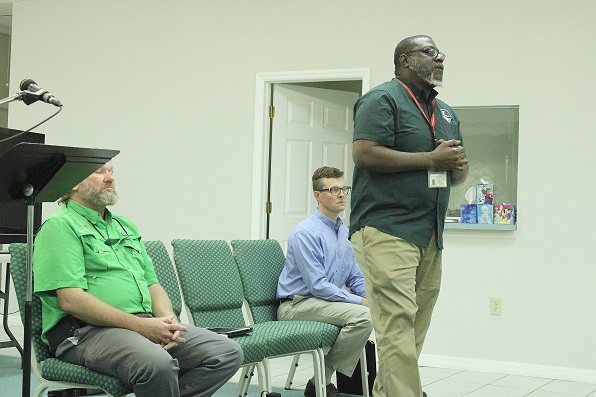
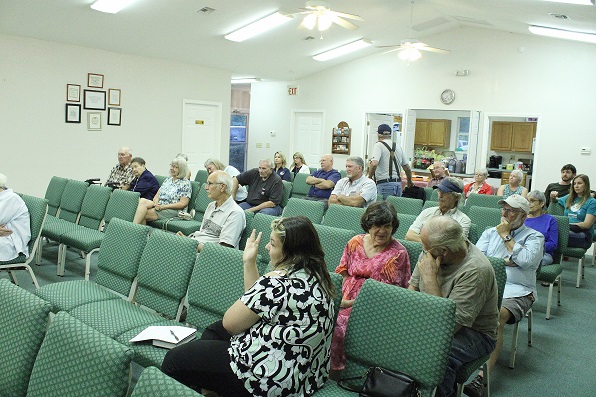
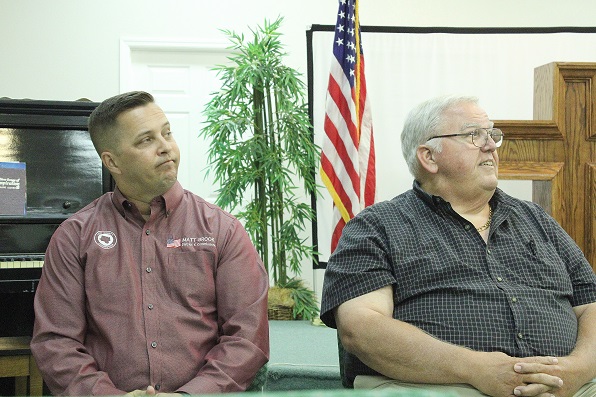
———————–
Enterprise Reporting by Terry Witt September 8, 2022; Posted September 10, 2022








